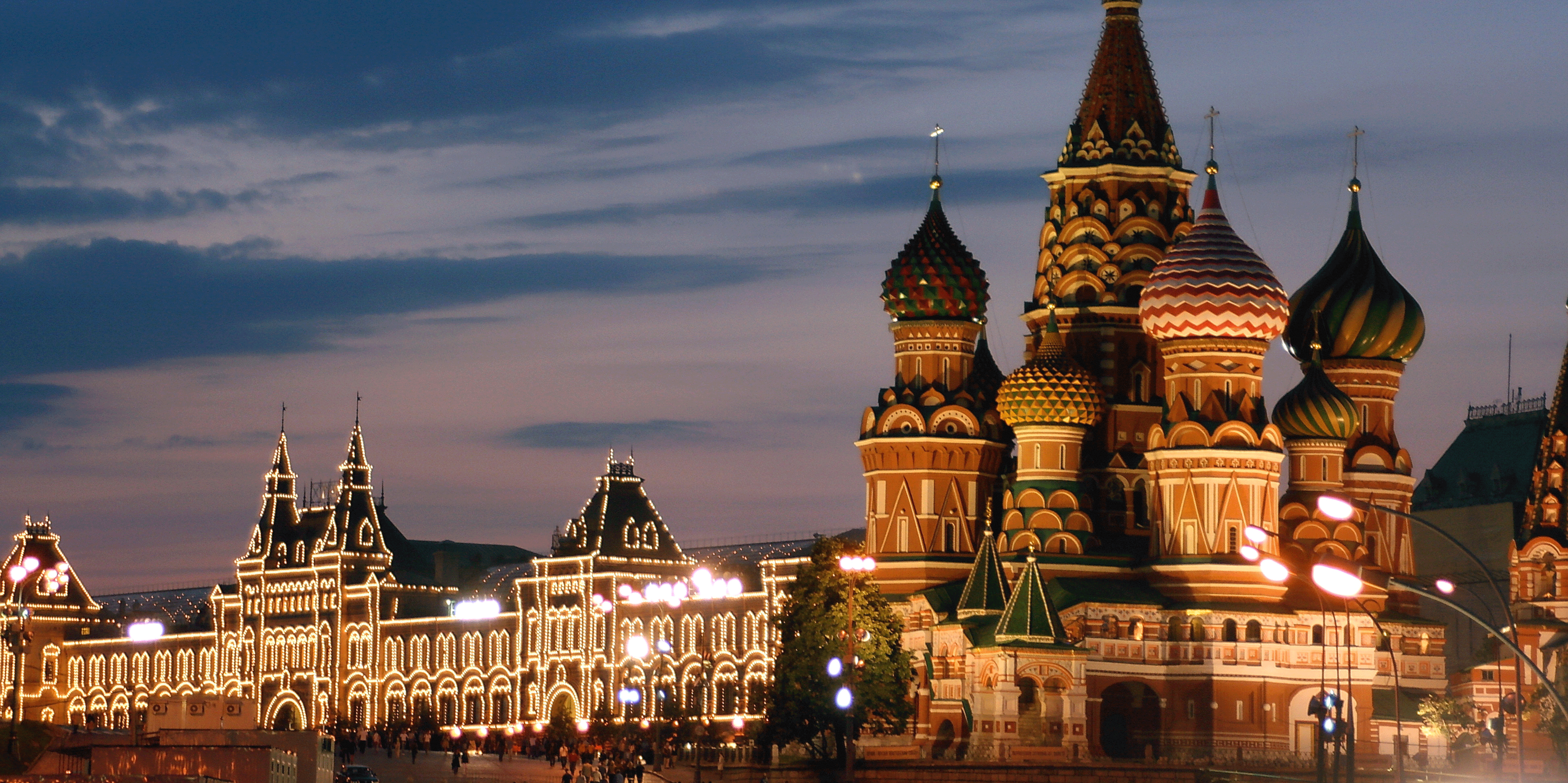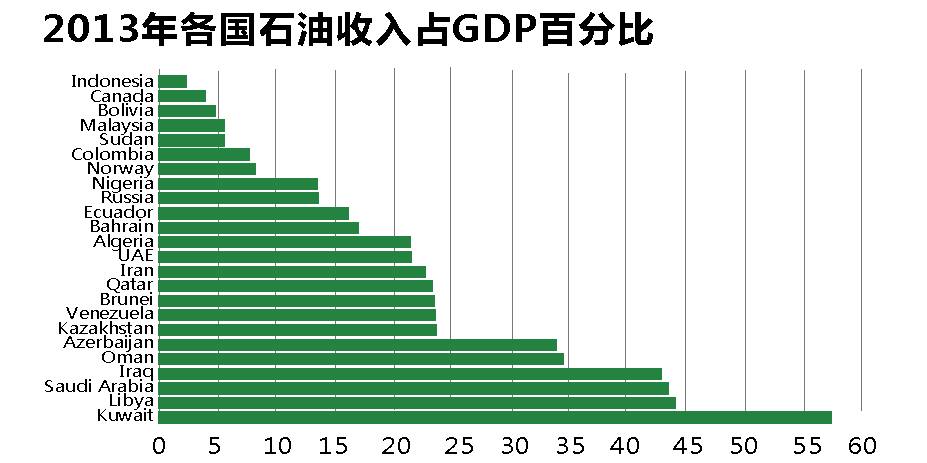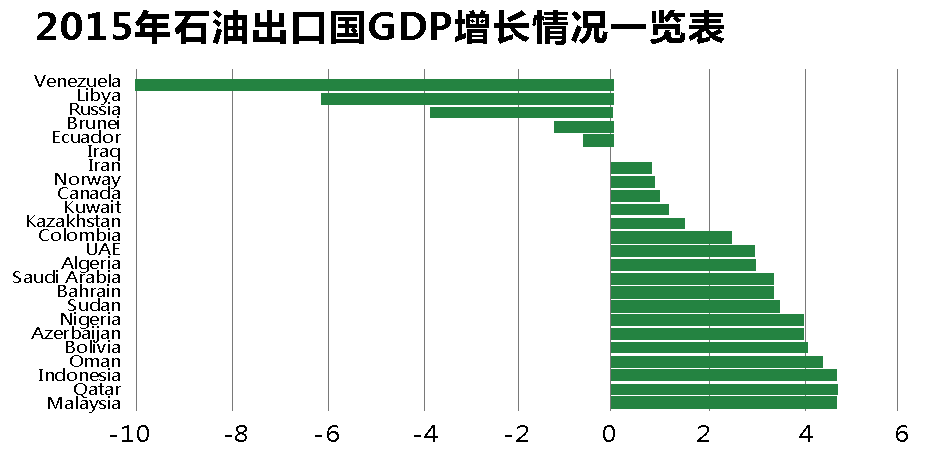Russia’s economic decline this year is often attributed to low oil prices. Yet Russia has performed considerably worse than most of its oil-exporting peers, so there must be another reason.
Marek Dabrowski, co-founder of the Center for Social and Economic Research in Warsaw and a professor at Moscow’s Higher School of Economics, recently ran the numbers on the oil-exporting economies and discovered a paradox. Russia is not even close to being the most oil-dependent of these countries:
Fuel accounts for more than 70 percent of Russia’s exports (in countries such as Iraq, Libya, Venezuela, Algeria or Kuwait, it exceeds 90 percent), but oil rents only make up 13.7 percent of the country’s gross domestic product. So there’s a dependence on oil revenue but perhaps not a life-threatening addiction. Kuwait and Saudi Arabia have more to worry about, with oil rent at 57.5 percent and 43.6 percent, respectively. At the same time, Russia is about to post one of the worst economic results among its peers this year:
The International Monetary Fund expects the Russian economy to shrink 3.8 percent. Among major oil exporters, only Libya and Venezuela are expected to do worse. And most fuel exporters are going to show growth despite the oil slump. In most cases, the numbers will look somewhat worse than in 2013, before oil took a dive, but they still look great in comparison to Russia.
The Gulf states, Dabrowski says, have staved off decline with fiscal expansion, increasing debt levels and budget deficits. Yet Russia now runs a fiscal deficit, too, and it hasn’t helped. Could it be that Russia has suffered more than others because of Western sanctions, imposed after its aggression in Ukraine? Dabrowski mentions these in passing, but they haven’t had a serious effect on the Russian economy. According to Citigroup research, the sanctions only account for 10 percent of the country’s output decline. Citigroup analyst Ivan Tchakarov pointed out that, with access to Western financial markets limited by the sanctions, Russian companies have successfully deleveraged; they have felt little pain.
According to Tchakarov, the oil slump was responsible for 90 percent of Russia’s decline. So why have more oil-dependent countries suffered less? The answer probably is related to the Russia’s handling of the oil slump. It is the champion in currency depreciation among oil-exporting peers, and only Iran will experience higher inflation this year, according to the IMF. The government has allowed the ruble to slide freely instead of drawing down international reserves — something other oil exporters have been reluctant to do, seeking to lessen the economic pain. President Vladimir Putin, however, was unconcerned about that: wars in Ukraine and now in Syria, and a propaganda machine running full steam, have kept his approval ratings high.
Yet making Russians pay has resulted in plummeting domestic demand. That pessimism, in turn, led to disinvestment. Retail volume and investments are still in decline, though the recession appears to be bottoming out as the economy begins growing, as measured in month-on-month terms. Putin’s government has done nothing to relax its iron grip on business or eradicate high-level corruption. It hasn’t even pretended to be more welcoming to investors: The rhetoric coming out of the Kremlin is mainly grim survival and hostility.
Oil-exporting countries that are doing better than Russia fall into three groups. The first includes highly diversified economies such as Malaysia or Canada. Russia could have worked harder on diversification while oil was expensive, but it missed the chance. Another group includes countries such as Norway, United Arab Emirates and Qatar, with huge foreign reserves and negative net debt positions — meaning they are owed a lot of money. Russia had a chance to do that, too, but only saved up enough to last a couple of years at the current oil price — which explains why it would rather let the ruble devalue indefinitely than use the reserves to defend the currency. Members of the third group — Bolivia, Azerbaijan and some others — have tried to soften the blow while making their financial situation more precarious and hoping for a price recovery. Russia could have done that, too, but it wouldn’t have been prudent given Putin’s sense that he was defending his country against a hostile West.
Some oil exporters — Venezuela and Nigeria, for example — are inept when it comes to economic policy. That isn’t the case with Russia: It just has a leader who doesn’t prioritize the economy or care too much about living standards as long as the population is enthusiastic about his quest for a bigger geopolitical role. Russia is unique among oil exporters as a nation that is being milked for the sake of one man’s grand vision. If oil prices go up, the vision will be more lavishly funded.




 石油圈
石油圈